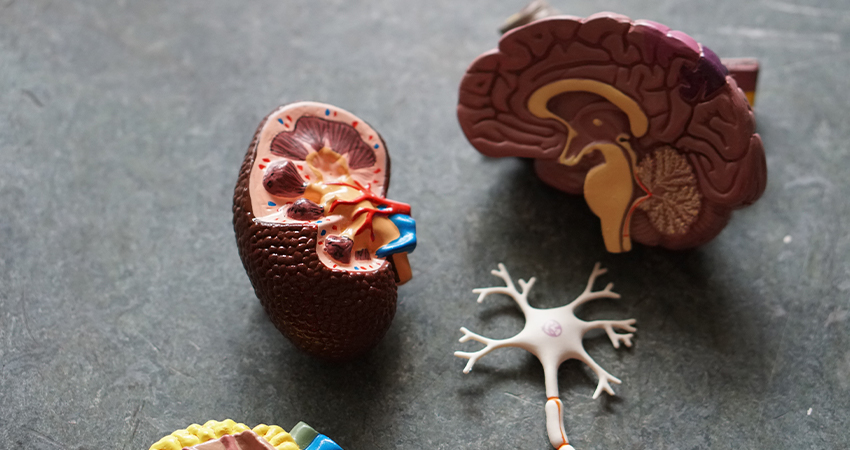September is World Alzheimer’s Month and the perfect time to learn more about this debilitating disease.
According to Alzheimer’s Disease International, every three seconds someone in the world develops dementia, “a collective name for progressive degenerative brain syndromes which affect memory, thinking, behavior and emotion.” In fact, Alzheimer’s disease, and vascular dementia account for nine out of ten cases of dementia. Symptoms may include:
- Memory loss
- Personality and mood changes
- Difficulty in performing daily, routine tasks
- Difficulty in using words or comprehending others
There is no cure for Alzheimer’s, however, there may be a way to improve outcomes by making an earlier diagnosis.
10 warning signs of Alzheimer’s/dementia:
- Memory loss disrupting daily life. It’s not uncommon to forget names or appointments as you age, but routinely forgetting information or repeatedly asking for the same information could be a sign of Alzheimer’s.
- Difficulty in planning or problem-solving. Occasional errors are normal at any age, but individuals in the early stages of Alzheimer’s may exhibit greater difficulty concentrating on problems. Working through challenges could take longer than in the past.
- Difficulty completing familiar tasks. Driving, budgeting, or remember rules to a game could be challenging for individuals with Alzheimer’s.
- Time/place confusion. Not understanding where you are or how you got there could be a sign of dementia.
- Difficulty judging distance or color/contrast. Difficulty judging spatial relationships can make tasks like driving risky and difficult.
- Losing words (speaking or writing). Stopping mid-sentence or using odd word choice can be a sign of Alzheimer’s.
- Misplacing items. It’s not uncommon for individuals with Alzheimer’s to place items in unusual spots. In some cases, this can lead to the individual accusing others of stealing.
- Poor judgement. Affected individuals may lose their ability to exercise good judgement or make sound decisions.
- Withdrawal from work or social life. From time to time, we all need a break from the demands of work, family, and friends. But for individuals with Alzheimer’s, the step back may be more pronounced and longer lasting.
- Mood and personality changes. Many patients with Alzheimer’s may exhibit confusion, suspicion, depression, or other new behaviors.
If you notice one or more signs in yourself or another person, it can be difficult to know what to do. It’s natural to feel uncertain or nervous about discussing these changes with others. Voicing worries about your own health might make them seem more “real” or, you may fear upsetting someone by sharing observations about changes in his or her abilities or behavior. However, these are significant health concerns that should be evaluated by a doctor, and it’s important to take action to figure out what’s going on. With early detection, you can explore treatments that may provide some relief of symptoms and help you maintain a level of independence longer.

